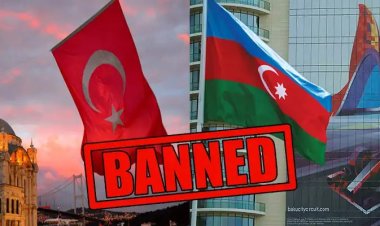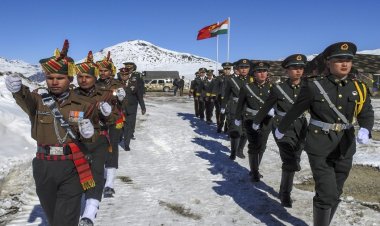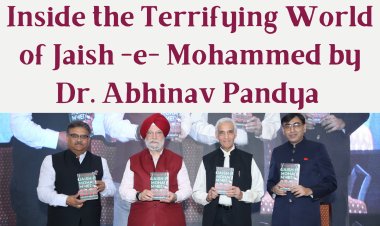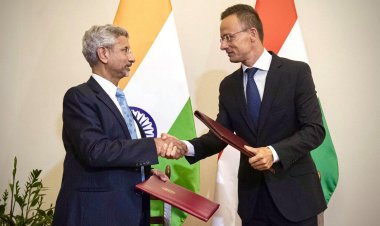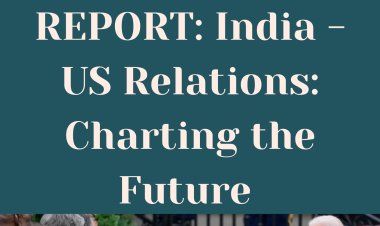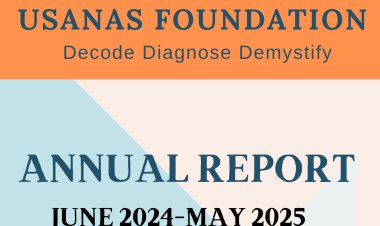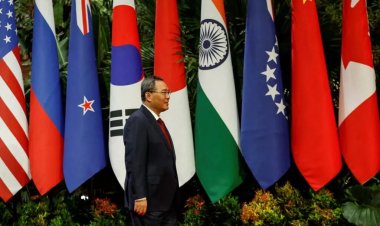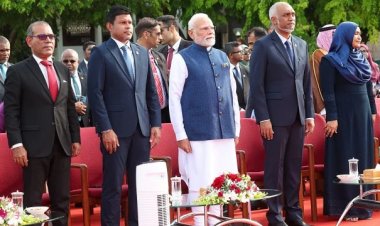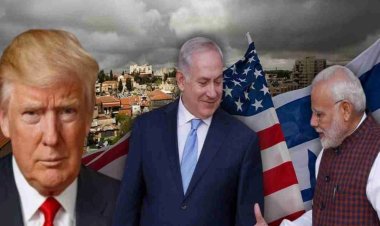West needs to shed its Colonial Baggage and accept India as a Global Power
If the West wants a meaningful and constructive engagement with India, then it can’t be purely transactional based on a myopic approach, duplicity and colonial baggage.
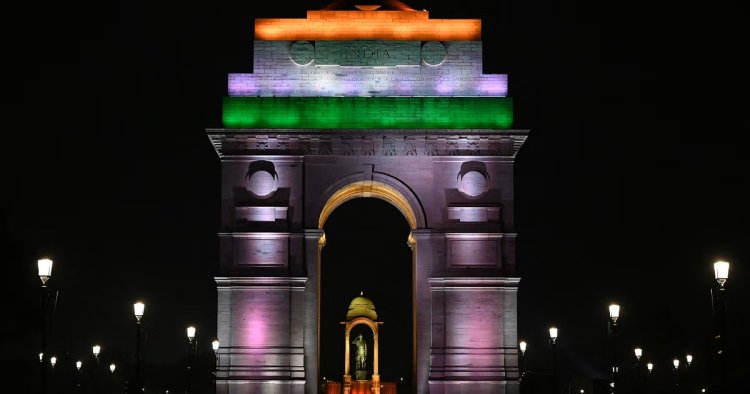
Analysis
By Dr. Abhinav Pandya
A recently declassified report from the Canadian Security Intelligence Service equating India with China as a potential foreign interference threat to Canada’s democratic processes brings another major setback to India’s already troubled relationship with the Western world, particularly the US and Canada. Over the last few months, India’s bilateral ties with the US and Canada have plummeted, touching news lows over the issues of Canada’s false allegations of Indian involvement in the murder of Khalistani terrorist Hardeep Singh Nijjar and DC’s fabricated and politically motivated allegations of the Indian agents plotting to kill another Khalistani saboteur Gurupatwant Singh Pannun, on the American soil.
The current rough patch India’s diplomatic ties with the US and Canada are going through are not bolts from the blue, surprising the strategic community. Any keen observer of the historical trajectory of India’s bilateral ties with the two countries will understand the rationale behind these frictions, i.e., the Western obsession with bullying and pressurising India to align with their flawed and short-sighted strategic objectives. However, what disappoints and alarms is the timing of such allegations, raising serious questions about the long-term intent, sincerity and honesty of their claims of strengthening bilateral ties. It seems that the Western block is hell-bent on spoiling and ruining diplomatic ties with India, with an utmost disregard for their image in India’s popular perception.
In the post-COVID world, fully aware of Chinese aggressive and revisionist behaviour, the global strategic community, particularly the Western world, has been fervently proposing to forge a robust front of democratic states against China’s autocracy, revanchism, and revisionism. The Quad, of which India is a key member, has been at the forefront of this thought. India, with its credentials of being the largest democracy with credible institutions and a responsible state actor, is expected to be a core member of the anti-China front. Whether the Western powers pursue this goal in sincerity is a question that can be left to those driving the deep state in the Western block. However, at least in the popular perception of foreign policy scholars, the Western block expects and wants India to be one of the strongest pillars of such an anti-China front.
The most pertinent question that arises in the backdrop of this fundamental thought of contemporary diplomacy being shaped to respond to the world order changing trends is by which rational are the Western powers expecting India to support and animate their proposed anti-China front of democratic states if, at the same time, they are painstakingly eroding the foundations of trust with India by sabotaging its image and being persistent in bullying and sermonising New Delhi on democracy and human rights? What is the logic of this duplicitous behaviour of the US-led Western world where it wants India to be its key ally against China; however, at the same time, they leave no stone unturned in ruining the bilateral trust by a malicious anti-India propaganda war.
On the one hand, the West speaks of India as a vibrant democracy with a burgeoning economy, stability, and credible institutions. However, on the other hand, they castigate India through their religious freedom and human rights measuring agencies like USCIRF as a country of concern with minorities living in fear, democracy backsliding, and the country slipping into dictatorship. For example, the recent inauguration of the Ram temple is a matter of utmost importance to Indians and their faith; however, the Western press condemns it as a fascist majoritarianism.
With this perplexed and contradictory messaging, what do they expect? Is it going to generate popular support for them? And, when such allegations and aspersions are without evidence, lacking research and full of biases and racist arrogance, then it generates a current of anti-West feelings. Any random opinion poll today is most likely to result in an extraordinarily positive perception of Russia and an extremely negative opinion of the US, UK, and Canada, despite all the talk of strengthening bilateral ties with the US, including arms deals and defence cooperation agreements like BECA, LEMOA, and COMCASA.
In the current scenario, though Russia is more aligned with China, India’s arch-rival, any visit of Indian leaders to Russia or vice-versa generates tremendous euphoria and joy among the common people, unlike in the case of a visit to the US. The popular memory shows an immense emotional love for Russia, seen as a great friend who helped India during the 1971 war. It is quite surprising but not difficult to understand why an overwhelming number of people aware of foreign policy and international affairs speak English, watch Hollywood movies and American drams, chase the American dream, eat Western food, and send their children to study in Canada, the US, UK and Western Europe. However, there is no love lost for the West. Western powers’ overt criticism, anti-India and anti-Sanatan propaganda, and constant lecturing to India, in a complete disregard to its values, culture, history, interests, popular sentiments, and beliefs, generate antipathy towards the West.
The recent Canadian Intelligence report identifying India as a foreign interference threat to its democracy cannot be ignored as purely an India-Canada bilateral issue. It is about a much bigger issue of the fundamental approach and attitude of the US-led Western block towards India. First and foremost, as far as the allegations are concerned, without much effort and argumentation, they can be dumped as baseless and motivated. In fact, on a closer analysis, it can be argued that instead of them, India should be accusing them of foreign interference and sabotaging its democracy, cultural and religious legacy, and social harmony. Since the 1970s, the US has sheltered and encouraged Khalistani separatists in cahoots with the notorious ISI.
Today, when the Khalistani terrorist movement is dead in India, the hardcore Khalistani terrorists and ideologues have found safe havens and a supportive environment in Canada, the UK, and the US. Gurupatwant Singh Pannun, who has called for a Sikh referendum directly threatening and challenging India’s territorial integrity and sovereignty, the US establishment stands behind him and facilitates his anti-India campaign. In Canada, Khalistani extremists and absconding Indian gangsters and criminals have a free run. Jagmeet Singh’s National Democratic Party, an avowed Khalistan sympathizer party, is a member of the Canadian government. In complete disregard to Indian concerns and sentiments, Sikh extremists organized processions glorifying Indira Gandhi’s killers and blatantly threatened Indian diplomats. The worst part is that the Canadian government is mostly a mute spectator and, on several occasions, appears as a supporter and sympathizer.
Reportedly, ISI agents and handlers have coordinated anti-India operations with Khalistanis and Kashmiri separatists in Canada. Allegedly, Kashmiri separatists and extremists working under the instructions of the ISI in the Kashmir Canadian Council have been instrumental in running anti-India propaganda operations and funnelling terror funds in Kashmir. Western actors have fuelled environmental protests against development projects and fanned caste, communal, and regional fault lines. Missionary organizations with the tacit support of Western institutions have executed grand conversion campaigns like Project Joshua to dismantle the entire demographic structure of this country. Additionally, the Western intelligence agencies, as mentioned in the memoirs of their retired intelligence officials, played a key role in Lal Bahadur Shastri and Homi Jehangir Bhabha’s death under mysterious and suspicious circumstances. The US facilitated Pakistan’s massacre of three million Bangladeshis in 1971 by continuing its military supplies to Pakistan, knowing full well that Islamabad was using those weapons against hapless and unarmed Bangladeshis.
Besides, Western academic institutions, journalists, and non-profit organisations have often ridiculed India’s democracy and peddled anti-India narratives, particularly on the issues of minority rights, democracy, and human rights. After Narendra Modi was sworn in as prime minister in 2014, the Western human rights industry launched a campaign against India, which continues till today. Given this track record, when the US-led West accuses India of being a foreign interference threat to their democracy, it comes out as their sheer hypocrisy. It not only exposes their duplicity but severely damages the fledgling faith of Indian voters in the West. It can be seen in today’s popular perception.
Today, when the West needs India as an ally against China, they are expected to be more generous and respectful towards India’s social, political, cultural, and religious trends; however, they continue to be vitriolic and derisive of India. It emanates from the deep-rooted vestiges of a racist colonial mindset, arrogance, and a false sense of superiority, which hinders them from accepting India as a major global power. The West feels that by using pressure tactics, psyops, and bullying, they can force India to align with them and unequivocally support them by joining alliances against Russia and China. This is a very narrow, utilitarian, and transactional approach towards diplomacy, which is bound to fail with India. This approach is rooted in their understanding of geopolitics in binaries, coming from their historical experience. However, in the oriental world, historical experiences were different, shaping a different understanding of statecraft and diplomacy.
Likewise, India’s approach and wisdom in foreign policy come from a different kind of legacy, entirely different from the Western experiences of mercantilism, world wars, capitalism, and imperialism. This is why India takes a principled stand based on its enlightened self-interest and national security on various global issues like the Ukraine war, China’s expansionism, climate change, and the Israel-Hamas conflict. The West needs to understand and appreciate India’s uniqueness and strategic autonomy instead of bullying and arm-twisting.
These pressure tactics will not work in India’s case. If the West wants a meaningful and constructive engagement with India, then it can’t be purely transactional based on a myopic approach, duplicity and colonial baggage. The engagement has to be on an equal footing, emphasizing mutual trust, respect, understanding, and sincerity. Interestingly, it can be observed that New Delhi has found a way to bypass Western bullying through its nuanced bilateral diplomacy based on mutual respect and sincerity. It can be seen in India’s strengthening ties with Armenia, Greece, France, the UK, Saudi Arabia, Turkey, UAE, Israel, and Italy and outreach to other European countries, traditionally falling in the Western block. At the same time, India has successfully maintained its robust ties with Iran and Russia, facing sanctions from the Western world.
Even with China, New Delhi can be seen exploring a modus vivendi to coexist and continue economic ties while resolving the boundary disputes. Prime Minister Modi’s smart diplomacy riding on the wheels of bilateralism and mini-lateralism has been India’s phenomenal success in today’s highly polarised world, except for nations. In my informal and formal interactions with several European diplomats, I found that except for the US and Canada, the rest of the Western world has already started accepting and appreciating India’s unique ability to maintain its strategic autonomy and cordial and principled ties with the rival blocks and powers. Also, in their opinion, India sounds confident, stronger, and convincing in projecting its narrative on national and global issues.
Disclaimer: This paper is the author's individual scholastic contribution and does not necessarily reflect the organization's viewpoint. The article was first published in Firstpost.

